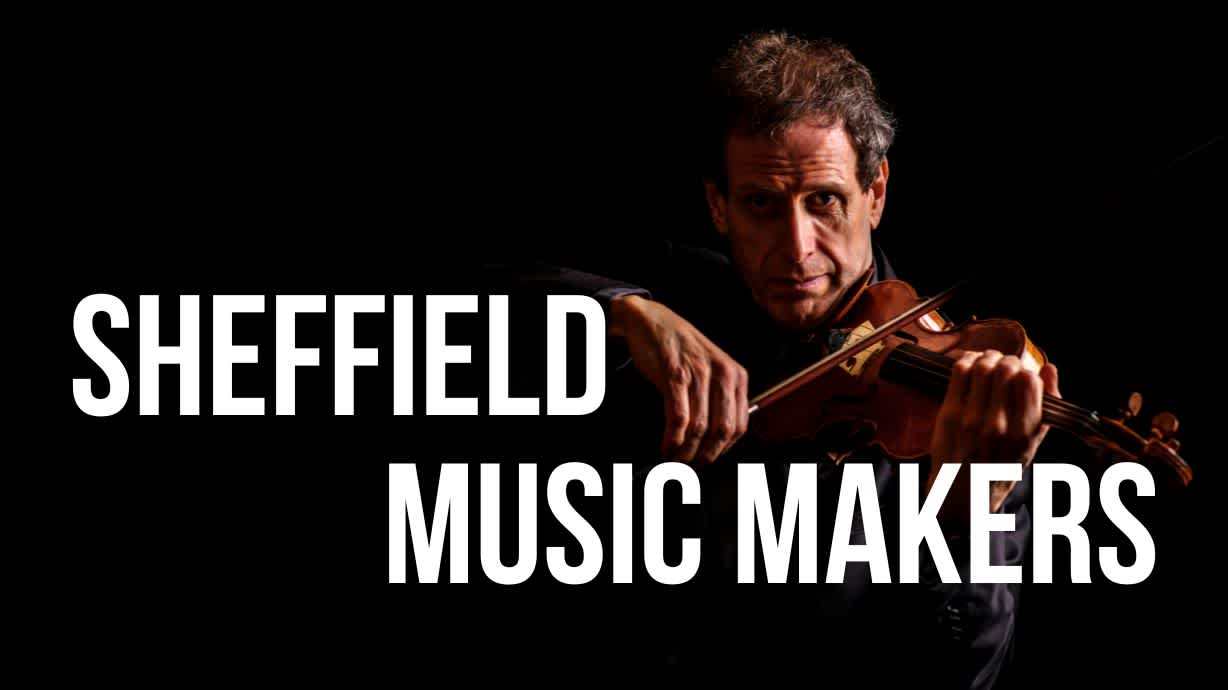Our Winter 2024 concert: Sheffield Music Makers

For our Winter 2024 concert we have an eclectic mix of musical morsels which combine together to make a wonderfully appetising whole.
Rossini once composed an aria in the time it took his risotto to cook; and claimed “Give me a laundry list and I’ll set it to music”. The truth is that he had an amazing gift for writing catchy, memorable tunes and his Overture to the Barber of Seville is stuffed full of them — some of which are instantly recognisable.
Our next two pieces are less well known — indeed very few will have heard, or heard of our second piece Mina, Elgar’s last orchestral work which is by turns gentle, sad, and haunting. Mina was his cairn terrier which, together with Marco and Meg became his constant companion after the death of his wife Alice. This is his hymn of thanks to her (the dog not his wife).
Caplet (a friend of Debussy with whom he collaborated) composed his Suite Persane in response to the Exposition Universelle held in Paris in 1889. Eiffel built his eponymous tower for this event, but this piece evokes the foreign, exotic lands which he encountered at the Expo. It’s for a “double wind quintet” but you’ll have to come along to find out exactly what that is.
Oddly, Tchaikovsky’s Souvenir de Florence seems inspired more by Italy’s sunny climes than by its music, for it doesn’t sound remotely Italianate. The 2nd Movement (adagio cantabile e con moto) which our string section will be playing tonight has a certain lean quality — especially the the middle section, which is imaginative and rather daring — though the main theme is mellifluous and richly romantic.
Having heard Elgar’s last work we now present Rachmaninov’s first, his Scherzo in D minor — or more accurately his earliest surviving composition for Orchestra which dates from 1888 when he was only 14 and studying at the Moscow conservatory. Again, in contrast to Elgar’s work its tunes are instantly recognised by many.
And from one well known tune to another — Handel’s Suite #2 in D from the Water Music, needs hardly any introduction. Marked “Alla Hornpipe” it was composed at the request of King George I who wanted a concert on the River Thames, and Handel obliged him with this masterpiece.
Back to slightly less well known territory with Svendsen’s Romance, unless you are a violinist of course, many of whom learn this lyrical, at times heart rending, romantic masterpiece. The work was apparently sketched during a couple of hours when a violin student did not show up and then written out as a score the same evening. Easier to compose clearly than to perform where hours, days and months of effort are required. We hope you enjoy our leader Ralph Dawson’s interpretation.
For our Grand Finale we turn to Mozart’s 31st Symphony — “Paris”. Composed when he was 22, it is notable for having an unusually large instrumentation for its time and is the first symphony where he used clarinets. It has been described as “quite noisy, having vigorous, stirring tuttis, with a lively violin line and an active line for the basses, lending the music extra animation”. We’ll use fewer instruments than at the premiere (where for example there were 5 basses) in the hope of achieving musicality rather than “noise”!